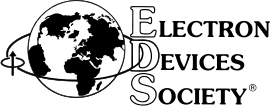- Home
- Publications
- Transactions on Device and Materials Reliability
- Editor-in-Chief and Editors
Editor-in-Chief and Editors
Edmundo A. Gutierrez-D. - Solid State Device Phenomena; Emerging Technologies and Devices Dr. Edmundo A. Gutiérrez-D. Got his PhD in 1993 from the Catholic University of Leuven, Belgium with the thesis entitled “Electrical performance of submicron CMOS technologies from 300 K to 4.2 K”. From 1989 to 1993, while working for his PhD, served as a research assistant at the Interuniversity Microelectronics Center (IMEC) in Leuven, Belgium. In 1996 was guest Professor at Simon Fraser University, Vancouver, Canada. In 1996 spent two months as an invited lecturer at the Sao Paulo University, Brazil. In 2000 acted as Design Manager of the Motorola Mexico Center for Semiconductor Technology. In 2002 was invited lecturer at the Technical University of Vienna, Austria. In 2005 joined the Intel Mexico Research Center as technical Director. Currently he holds a Professor position at the National Institute for Astrophysics, Optics and Electronics (INAOE), in Puebla, Mexico. Prof. Gutiérrez-D. is an IEEE senior member since 2008. Professor Gutiérrez-D. has published over 100 scientific publications and conferences in the field of semiconductor device physics, has supervised 5 M.Sc. and 10 Ph.D. thesis, and is author of the book “Low Temperature Electronics, Physics, Devices, Circuits and Applications” published by Academic Press in 2000. Prof. Gutiérrez-D. is member of the Mexico National System of Researchers and technical reviewer for the Mexico National Council for Science and Technology (CONACyT).T-DMR Editor-in-Chief
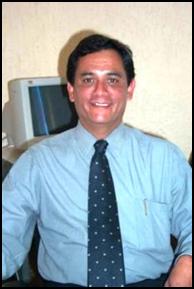
for Astrophysics, Mexico
T-DMR Editors
Gennadi Bersuker - Gate Dielectrics, Transistors
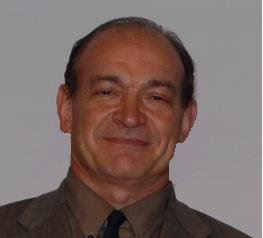
Austin, TX, USA
Gennadi Bersuker completed his M.S. and Ph.D. in Physics at the Leningrad State University and Kishinev State University, respectively. After graduation, he joined Moldavian Academy of Sciences, and then worked at Leiden University and the University of Texas at Austin. Since 1994, he has been working at SEMATECH on electrical characterization of Cu/low-k interconnect, high-k gate stacks, advanced memory, and CMOS process development. He has been involved in organizing, chairing, or serving as a committee member in a number of technical conferences, including IRW, IRPS, IEDM, ULSI-TFT, ISAGST, LEC, NGCM, APS. He is a SEMATECH Fellow and has published over 200 papers on the electronic properties of dielectrics and semiconductor processing and reliability.
Gianluca Boselli - ESD
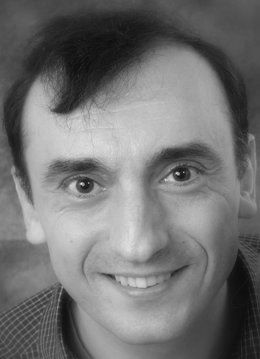
Gianluca Boselli completed his Master in EE at the University of Parma, Italy, in 1996. In 2001 he completed his Ph.D. at the University of Twente, The Netherlands, where he worked on high current phenomena in CMOS components. In 2001 he joined Texas Instruments, Dallas, Texas, where he focused on ESD and Latch-up development for advanced CMOS technologies, with particular emphasis on process and modeling aspects. In 2007 his responsibilities extended into ESD development of Texas Instruments’ Analog technologies portfolio. He authored several papers in the area of ESD and Latch-up. He presented his work at major conferences, including EOS/ESD Symposium, IEDM, and IRPS. He also presented many invited tutorials and papers at various conferences, including EOS/ESD Symposium, IRPS, IEDM, ESREF, IEW and RCJ. Dr. Boselli has been the recipient of the “Best Paper Award” on behalf of Microelectronics Reliability Journal in 2000. He received “The Best Paper Award” at the EOS/ESD Symposium 2002. He also received the “Outstanding Symposium Award” at the EOS/ESD Symposium in 2002, 2006 and 2010. Dr. Boselli served multiple times as Sub-Committee Chair for Technical Program Committees (TPC) of EOS/ESD Symposium, IRPS, IEW and ESREF. He served as moderator and panelist in many workshops in ESD and Latch-up area. Dr. Boselli has served as TPC Chair at the EOS/ESD Symposium 2006, Vice-General Chair at the EOS/ESD Symposium 2007 and General Chair at the EOS/ESD Symposium 2008. He is currently a member of the Board of Directors of the ESD Association, where he is the Symposium Business Unit Manager. Dr. Boselli is an IEEE senior member and holds fourteen patents with several pending.
Kin P. Cheung - Gate-Dielectrics, Transistors, Processing
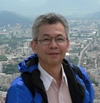
Dr. Kin P. Cheung, obtained Ph.D. degree in physical chemistry from the New York University in 1983. From 83 to 85 he was a post doc at Bell Laboratories during which he pioneered Terahertz Spectroscopy. From 1985 to 2001 he was a member of technical staff in Bell Laboratories at Murray Hill. From 2001 to 2006, He was an associate professor at Rutgers University. He is currently a project leader at the National Institute of Standards & Technology, Semiconductor Electronics Division. Dr. Cheung published over 140 refereed journal and conference papers. He authored a book on plasma charging damage, a book chapter and edited three conference proceedings. He served in the committee of a number of international conferences and has given tutorial in 10 international conferences. His area of interest is VLSI technology and devices.
Isodiana Crupi
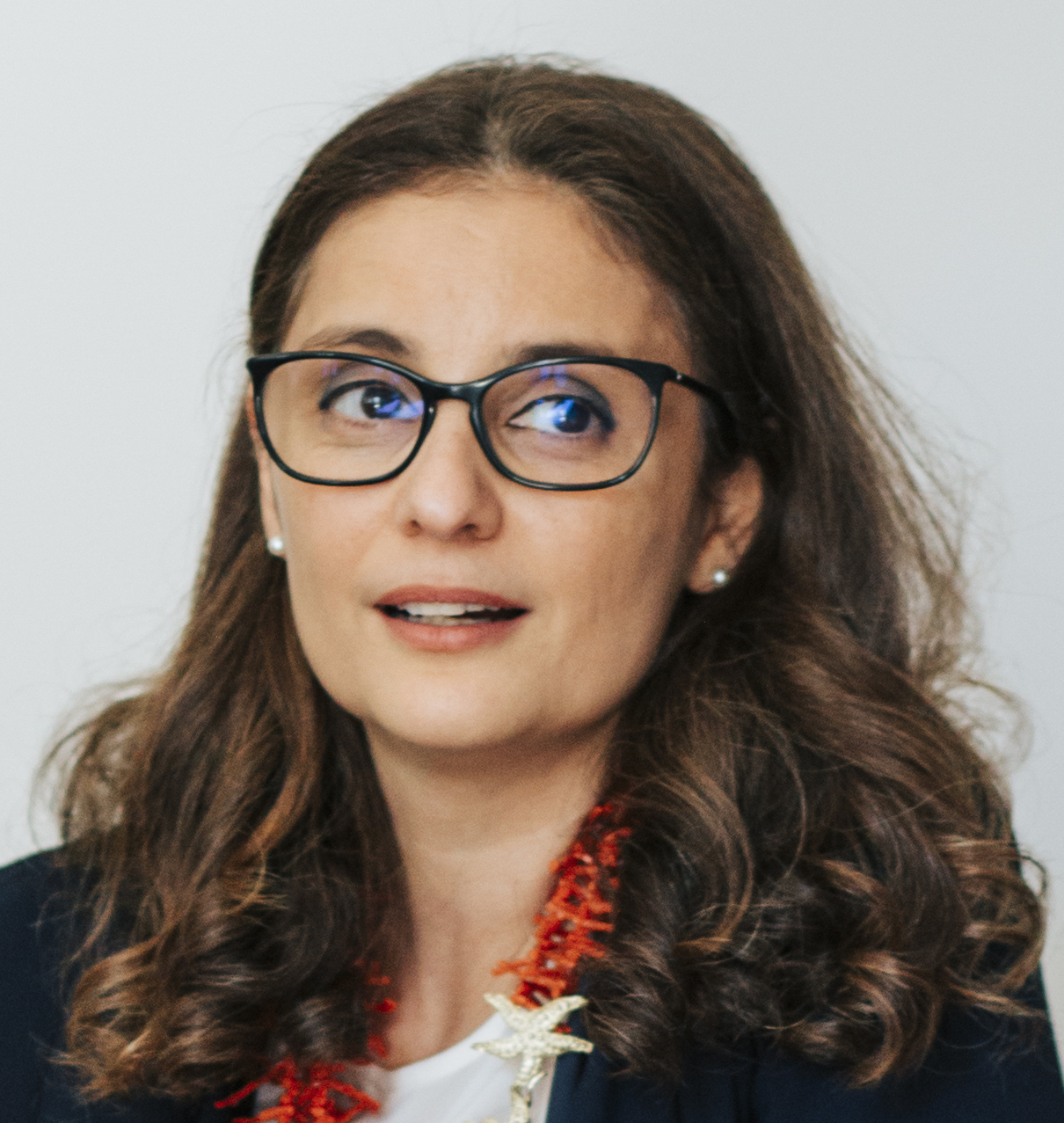
Palermo, Italy
Isodiana Crupi is Associate Professor at the Department of Engineering at the University of Palermo. She received the M.Sc. degree in Electronic Engineering from the University of Messina in 1999 and the Ph.D. degree in Materials Science from the University of Catania in 2003. From 2004 to 2015 she has been Research Scientist at the National Research Council (CNR-IMM) in Catania. Since 1998, she has been a frequent scientific visitor at IMEC, Leuven (Belgium) collaborating with the CMOS Reliability, FLASH Memory and Solar Cell groups and at the Czech Academy of Sciences, Praha, Czech Rep. Her main research interests include the synthesis and characterization of innovative materials for photovoltaic applications, electrical characterization of advanced semiconductor devices for micro- and optoelectronics and the development of silicon nanocrystals devices for memory applications. Prof. Crupi has authored and coauthored more than 90 papers published on ISI journals and international conference proceedings which have been cited about 1700 times (h-index of 25). She is coinventor of one U.S. Patent, participant of several national and EU research projects and supervisor of several Master and PhD theses. She serves as referee for outstanding international scientific journals and co-organized various symposia at the European Materials Research Society (E-MRS). She is a technical program committee member of the IEEE International Electron Devices Meeting (IEDM) in 2019 and, since 2012, of the European Solid-State Device Conference (ESSDERC). She received the "Young Scientist Award" at the E-MRS (2003) and the "Premio per Dottori di Ricerca" from the Accademia Gioenia (2004).
Abhisek Dixit - Modelling and Characterization of Reliability for Si- and GaN-based Devices
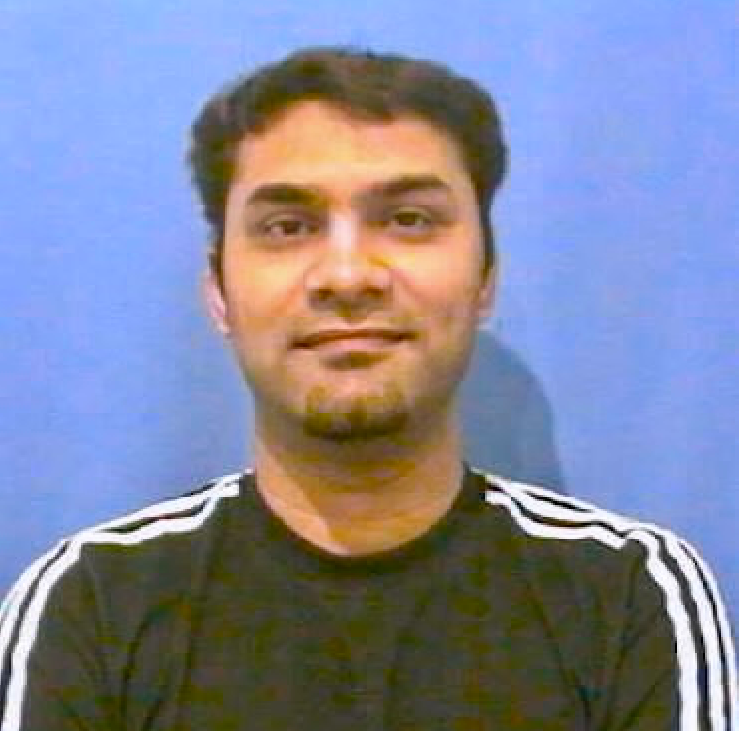
Indian Institute of Technology Delhi
Dr. Abhisek Dixit is currently an Associate Professor in the Department of Electrical Engineering, Indian Institute of Technology Delhi, New Delhi, INDIA. Other positions he held prior to this include Assistant Professor of Electrical Engineering at IIT Delhi and Advisory Research Engineer at IBM SRDC. Dr. Dixit received his PhD from K. U. Leuven/IMEC BELGIUM in 2007 and MTech from IIT Bombay, INDIA in 2002. He has worked on fabrication, characterization, compact and TCAD modeling of devices and circuits on various 300 and 200-mm technologies, including bulk Si, PD and FD-SOI, BiCMOS. Although his modeling and characterization work spans range of technology nodes all the way from 10-nm up to 0.35-micron, in his early career he focused on SOI- FinFET device-technology integration at 45, 32, 14-nm nodes. His current research interests include CMOS reliability including hot-carrier degradation and radiation hardness, pulsed/RF characterization and modeling of logic devices, and device scaling of SOI, nanowire, nanosheet, and negative capacitance-FETs beyond 7-nm nodes. Dr. Dixit has more than 60 publications and 4 patents in FinFET and related technologies and he is a senior member of IEEE since 2013.
Lecture Topics:
- CMOS logic device scaling
- Negative Capacitance FETs
- Gamma and Heavy Ion Irradiation Effects in CMOS
- CMOS-RF models
- CMOS Thermal Effects and Modeling
Weileun Fang - MEMS
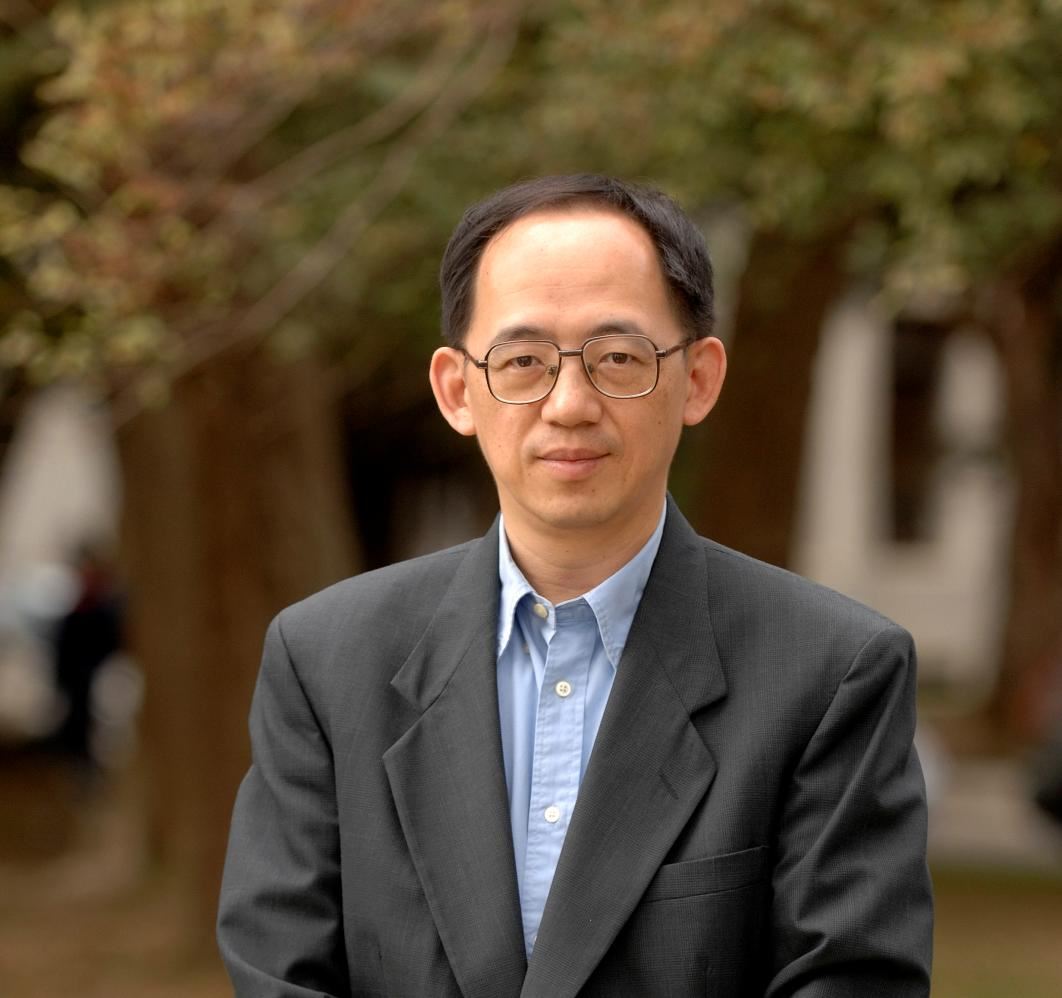
Prof. Fang was born in Taipei, Taiwan. He has been working in the MEMS field for 20 years. He received his Ph.D. degree from Carnegie Mellon University (Pittsburgh, PA) in 1995. His doctoral research focused on the determining of the mechanical properties of thin films using MEMS structures. In 1995, he worked as a postdoctoral research for LIGA project at Synchrotron Radiation Research Center, Taiwan. He joined the Power Mechanical Engineering Department at the National Tsing Hua University (Taiwan) in 1996, where he is now a Professor as well as a faculty of NEMS Institute. From June to September 1999, he was at California Inst. of Tech. as a visiting associate. He has established a world-class MEMS testing and characterization lab. His research interests include MEMS with emphasis on micro physical sensors and actuators, micro fabrication/packaging technologies, CMOS MEMS, micro optical systems, and characterization of thin film mechanical properties. Prof. Fang has published more than 110 SCI journal papers, near 180 international conference papers, and 60 patents (all in MEMS field). He is now the Board Member of JMM (SCI journal), and the Associate Editor of IEEE Sensors J., JM3 (SCI journals) and JSTS (J. of Semiconductor Tech. and Science, published by the IEE of Korea). He has served as the chief delegate of Taiwan for World Micromachine Summit since 2008. He also served as the TPC (Technical program committee) of IEEE MEMS’04, MEMS’07, and MEMS’10, the TPC of Transducers’07, and the EPC of Transducers’09 and Transducers’11. He has become the member of international steering committee of Transducers from 2009. He serves as the Asia Regional Program Co-Chair of IEEE Sensors 2010, and the TPC Chair of IEEE NEMS 2011. He also serves as the Steering Committee for APCOT (Asia Pacific Conf. on Transducers) from 2008-2012, and the TPC Co-chair for APCOT 2008. There are 26 PhD and 60 Master students graduated from Prof. Fang’s group so far. Most of them are working in the MEMS and micro sensors related companies, such as TSMC, UMC, ADI, InvenSense, Qualcomm, APM, tMt, Sitronix, PixArt, Domintech, WindTop, etc. He is now the MEMS committee member of SEMI Taiwan. He is the standing committee member of the Nanotechnology and Micro System Association (NMA), Taiwan. He also serves as the chair of the Technology Development and the International Collaboration Committee in NMA. Moreover, Prof. Fang serves as the technical consultant for many MEMS companies in Taiwan.
Martin Gall - Interconnects, 3DIC
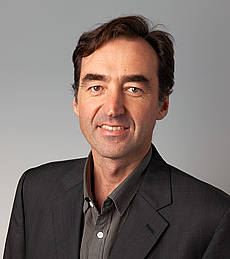
Materials and Reliability for Micro-and Nanoelectronics
Dr. Martin Gall is currently department head of Materials and Reliability for Micro- and Nanoelectronics at the Fraunhofer Institute for Nondestructive Testing in Dresden, Germany (FhG IZFP-D). He received the title of Diplomphysiker (M.S. in physics) from the Rheinisch-Westfaelische Technische Hochschule Aachen, Germany, in 1992, and a Ph.D. in materials science and engineering from The University of Texas at Austin, USA, in 1999. He joined the Motorola Semiconductor Division (later to become Freescale Semiconductor) in 1995 as an engineer and has since been working in the area of backend reliability, mainly addressing issues with electromigration, stress-induced voiding, and time-dependent dielectric breakdown. From 2002 until 2009, he managed the interconnect reliability team in Freescale Semiconductor’s Technology Solutions Organization, mainly focusing on implementation of advanced, low-k dielectrics in the 65, 45, 32 and 22 nm nodes. From 2007 until 2009, he was assigned to the IBM/Freescale Semiconductor Technology Alliance in Yorktown Heights and Hopewell Junction, NY. He relocated back to Europe in 2010 to join GLOBALFOUNDRIES, Dresden, Germany, and subsequently the Fraunhofer Institute in 2011.
Oscar Huerta - Globalfoundries Inc Malta
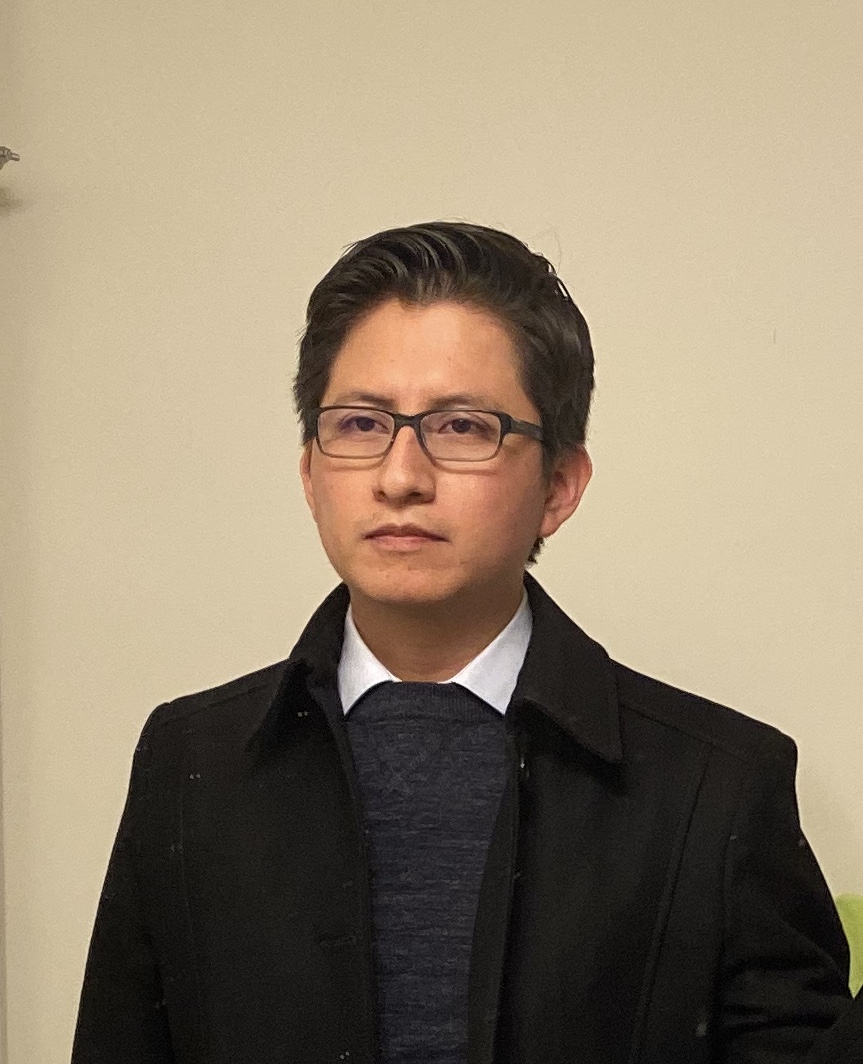
Agis A. Iliadis - III-V Transistors, LED
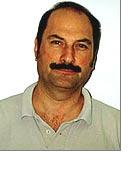
Electrical and Computer Eng
Agis A. Iliadis (M’83–SM’01) received his MS and PhD degrees in Electrical and Electronic Engineering from the Department of Electrical Engineering and Electronics, University of Manchester Institute of Science and Technology (UMIST), Manchester, U.K. He is a Professor in the Department of Electrical and Computer Engineering, the Director of the Semiconductor Nanotechnology Research Laboratory, and a member of the Maryland NanoCenter, of the University of Maryland, College Park, Maryland, USA. He is a member of the IEEE Electron Device Society and IEEE Reliability Society, a Distinguished Lecturer of the IEEE Electron Device Society, an Ad-Com member of the IEEE EDS Educational Activities Committee, and the Chair of the IEEE-EDS Master and PhD Student Fellowship Committee. He has served as an Ad-Com member of the IEEE-EDS Technical Committee on Electronic Materials, and was the EDS Representative of the IEEE-USA Professional Activities Board (PACE). He is also a member of the Society of Photonic and Instrumentation Engineers (SPIE), and the Institute of Physics (U.K.). He has organized and served in several Conference Committees. His contributions and research interests focus on improving performance and reliability of electronic devices and materials, including ohmic and Schottky metallizations in III-V and wide band gap semiconductors, the development of metal-oxide semiconductor nanostructures like ZnO through self-assembly and thin films through pulsed laser deposition on Si and other substrates, nanostructured chemical sensors, surface acoustic wave (SAW) bio sensors, and the effects of electromagnetic interference on CMOS ICs.
Ming-Dou Ker - ESD, System Reliability
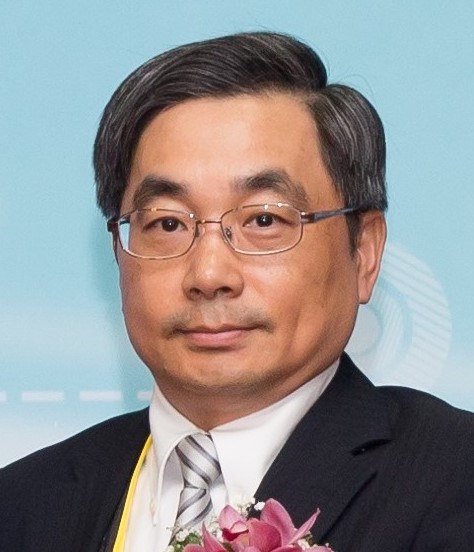
Electronics Engineering
Pey Kin Leong - Dielectrics

School of Electrical and Electronic Eng.
Dr. Pey Kin Leong received his Bachelor of Engineering (1989) and Ph.D (1994) in Electrical Engineering from the National University of Singapore. He has held various research positions in the Institute of Microelectronics, Chartered Semiconductor Manufacturing, Agilent Technologies and National University of Singapore. He is currently a Professor, Head of the Microelectronics Division, Director of Nanyang Nanofabrication Center and Director of the Microelectronic Center in the School of Electrical & Electronics Engineering, Nanyang Technological University, Singapore and holds a concurrent Fellowship appointment in the Singapore-MIT Alliance (SMA). Dr. Pey is a senior member of IEEE and an IEEE EDS Distinguished Lecturer, and has been the organizing committee member of IPFA since 1995. He was the General Chair of IPFA2001, Singapore and the co-General Chair of IPFA2004, Hsinchu, Taiwan. KL Pey was the Guest Editor of IEEE Transactions on Devices and Materials Reliability in 2003-05, and the Chair of the Singapore IEEE REL/CPMT/ED Chapter in 2004/05 and 2009 and served on the 2006/07/08 IRPS technical subcommittee, IPFA’02 to IPFA’06, IPFA’08 and IPFA’09 technical subcommittee and 2007 IEDM CMOS & Interconnect Reliability and 2008 IEDM Characterization, Reliability and Yield sub-committee. Dr. Pey has published more than 145 international refereed publications and 150 technical papers at international meetings/conferences and holds 33 US patents. Dr. Pey's research focuses are on pulsed laser annealing for channel engineering for nano-scale CMOS, advanced alloy silicide for nanostructures and nanodevices and transistor reliability in dielectric breakdown and advanced interconnects. Dr. Pey pioneers in using physical analysis techniques such as TEM and EELS in the study of breakdown mechanisms in ultrathin SiON and high-k gate stack.
Chee Wee Liu - Advanced Devices, Processing

Electrical Engineering
Chee Wee Liu (M’99–SM’00) received the B.S. and M.S. degrees in electrical engineering from the National Taiwan University (NTU), Taipei, Taiwan, in 1985 and 1987, respectively, and the Ph.D. degree in electrical engineering from Princeton University, Princeton, NJ, in 1994. /Vs at low temperature. He was the IEDM TPC member in 2008-2009 and subcommittee chair (SSN) in 2010. He received 2003-2005 Outstanding Research Award, National Science Council, Taiwan. Details in http://nanosioe.ee.ntu.edu.tw
Shankar N. Ekkanath Madathil - Solid State Power Devices
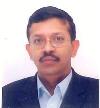
Ekkanath Madathil Sankara Narayanan (M’87–SM’00) was born in India, in 1962. He received his B.Sc. and M.Sc. degrees from PSG College of Technology, Coimbatore, India, M.Tech degree from the Indian Institute of Science, Bangalore and his Ph.D. degree from the University of Cambridge, U.K. He was a Maudslay Engineering Research Fellow in Pembroke College, Cambridge and a Research Associate with Engineering Department, Cambridge University during 1992–1994. He was the Director of the Emerging Technologies Research Center, De Montfort University, UK during 1994–2007. He is currently with the Electrical Machines and Drives Research Group at the University of Sheffield in the UK, where he holds the Rolls Royce/Royal Academy of Engineering Chair in Power Electronics Systems and Royal Society Industry Fellowship in Rolls-Royce, UK. His research interests include integrated and discrete power device technologies in Silicon and wide band gap materials, design for manufacturability and compact power converters for automotive/aerospace applications, functional materials, thin film transistors, RF technologies, and technology strategies in microelectronics. He is an author of more than 200 articles and holds twenty five patents, approved or pending approval. He is a Fellow of IET and IOP. He is in the editorial boards of IEEE Transactions on Devices and Materials Reliability and IET Journal of Power Electronics.
Karumbu Meyyappan - Modeling, Board & Package/Substrate Assembly, Reliability Areas
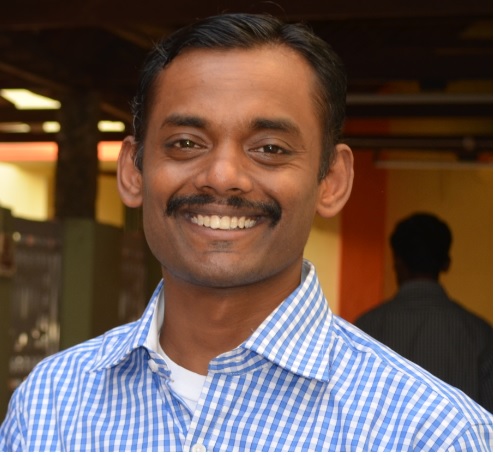
Dr. Karumbu Meyyappan is a senior staff engineer at Intel Corporation in Assembly & Test Technology Development division. In his current role, he leads strategic programs related to the areas of test and next generation interconnect solutions. Through his 16 years at Intel he has covered wide areas of reliability physics spanning Silicon back end to board level interconnects, design, predictive modeling, and development of reliability test methods including knowledge based qualification methods. He has published over 30 peer reviewed articles and has 5 patents. He is also a recipient of the Erle Shobert Prize Paper award in 2014. He received his PhD from University of Maryland College Park, MD, USA
Byoung Min - Memories
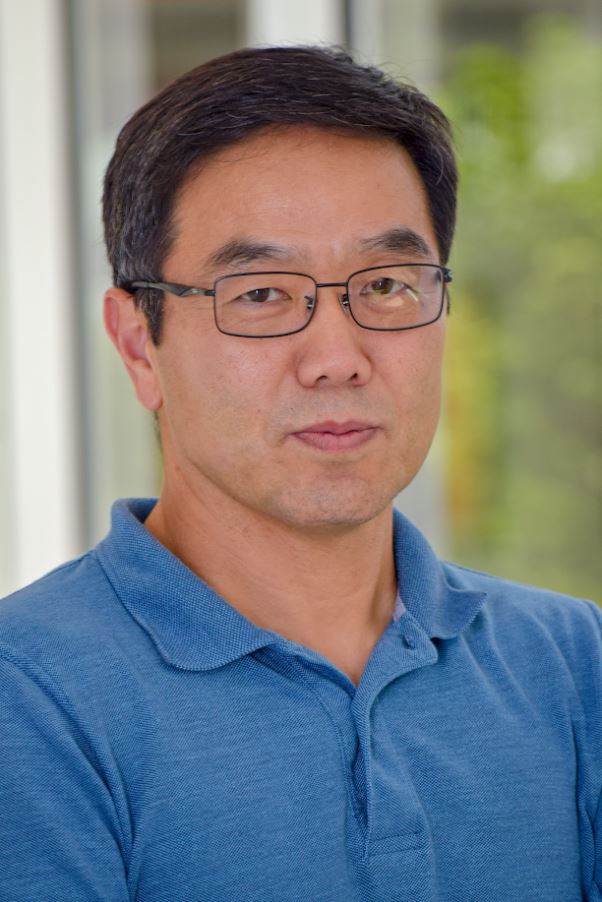
Byoung Woon Min (IEEE Senior Member since 2003) received B.S. from Korea University in 1988, M.S. from Korea Advanced Institute of Science Technology in 1990 and Ph.D. from the University of Texas at Austin in 1998. He has been in advanced semiconductor devices technology development and reliability characterization, working with SK Hynix in 1988-1994, Motorola/Freescale/NXP in 1997-2017, and currently with Globalfoundries as Principal Member of Technical Staff and Senior Manager of reliability engineering group since 2017. He authored/co-authored over 30 technical papers and invented/co-invented over 30 patents in various generations of CMOS technology.
Cher Ming Tan - Interconnects, Solar, LED
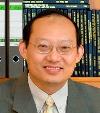
Dr. Tan received his Ph.D in Electrical Engineering from the University of Toronto in 1992. He has 10 years of working experiences in reliability in electronic industry (both Singapore and Taiwan) before joining Nanyang Technological University (NTU) as faculty member in 1996 till 2014. He joined Chang Gung University, Taiwan and set up a research Center on Reliability Sciences and Technologies in Taiwan and acts as Center Director. He is Professor in Electronic Department of Chang Gung University, Honorary Chair Professor in Ming Chi University of Technology, Taiwan. He has published 300+ International Journal and Conference papers, and giving 10+ keynote talks and 50+ invited talks in International Conferences and several tutorials in International Conferences. He holds 12 patents and 1 copyright on reliability software. He has written 4 books and 3 book chapters in the field of reliability. He is an Editor of Scientific Report, Nature Publishing Group, an Editor of IEEE TDMR and Series Editor of SpringerBrief in Reliability. He is a member of the advisory panel of Elsevier Publishing Group. He is also in the Technical committee of IEEE IRPS. He is a past chair of IEEE Singapore Section, senior member of IEEE and ASQ, Distinguish Lecturer of IEEE Electronic Device Society on reliability, Founding Chair and current Chair of IEEE Nanotechnology Chapter - Singapore Section, Fellow of Institute of Engineers, Singapore, and Fellow of Singapore Quality Institute. He is the Founding Chair of IEEE International Conference on Nanoelectronics, General Chair of ANQ Congress 2014. He is also the recipient of IEEE Region 10 Outstanding Volunteer Award in 2011. He is Guest Editor of International J. of Nanotechnology, Nano-research letter and Microelectronic Reliability. He is in the reviewer board of several International Journals such as Thin Solid Film, Microelectronic Reliability, various IEEE Transactions, Reliability Engineering and System Safety etc for more than 5 years. He is the only individual recipient of Ishikawa-Kano Quality Award in Singapore since 2014. He is also current active in providing consultation to multi-national corporations on reliability. His research interests include reliability and failure physics modeling of electronic components and systems, finite element modeling of materials degradation, statistical modeling of engineering systems, nano-materials and devices reliability, and prognosis & health management of engineering system. For more detail, please visit www.chermingtan.com
Lecture Topics
- Interconnect reliability
- Battery reliability
- System reliability
- LED reliability
- Graphene and reliability
- IoT reliability
- Automotive electronic reliability
Mustafa Berke Yelten - Associate Professor
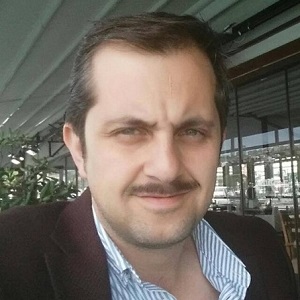
Mustafa Berke Yelten (Senior Member, IEEE, 2018) received the B.Sc. degree (High Hons.) in electrical engineering from Boğaziçi University, Istanbul, Turkey, in 2006, and the M.Sc. and Ph.D. degrees in electrical engineering from North Carolina State University, Raleigh, NC, USA, in 2008 and 2011, respectively. He was a Quality-Reliability Research Engineer with Intel Corporation, Hillsboro, OR, USA, from 2011 to 2015. Since 2015, he has been with the Electronics and Communications Engineering Department, Istanbul Technical University, Istanbul, where he is currently an Associate Professor. His research interests include the design, optimization, and modeling of nanoscale transistors and the design of analog/RF integrated circuits with a focus on reliability and operation under extreme conditions (cryogenic temperatures, high ionizing radiation, etc.).
- Publications
- Publications Committee
- Publication Representatives
- IEEE Guidelines for Authors
- Editorials for Authors and Reviewers
- EDS Newsletter
- IEEE Electron Devices Magazine
- Journal of Photovoltaics
- Transactions on Device and Materials Reliability
- Transactions on Semiconductor Manufacturing
- Journal on Flexible Electronics
- Journal of Lightwave Technology
- Transactions on Materials for Electron Devices
- Open Journal on Immersive Displays
- Electron Device Letters
- Journal of the Electron Devices Society
- Transactions on Electron Devices
- Journal of Microelectromechanical Systems
- Journal on Exploratory Solid-State Computational Devices and Circuits
- Journal of Electronic Materials
- EDS 50th Anniversary Booklet
- 75th Anniversary of the Transistor Book
- Electron Devices Reviews
